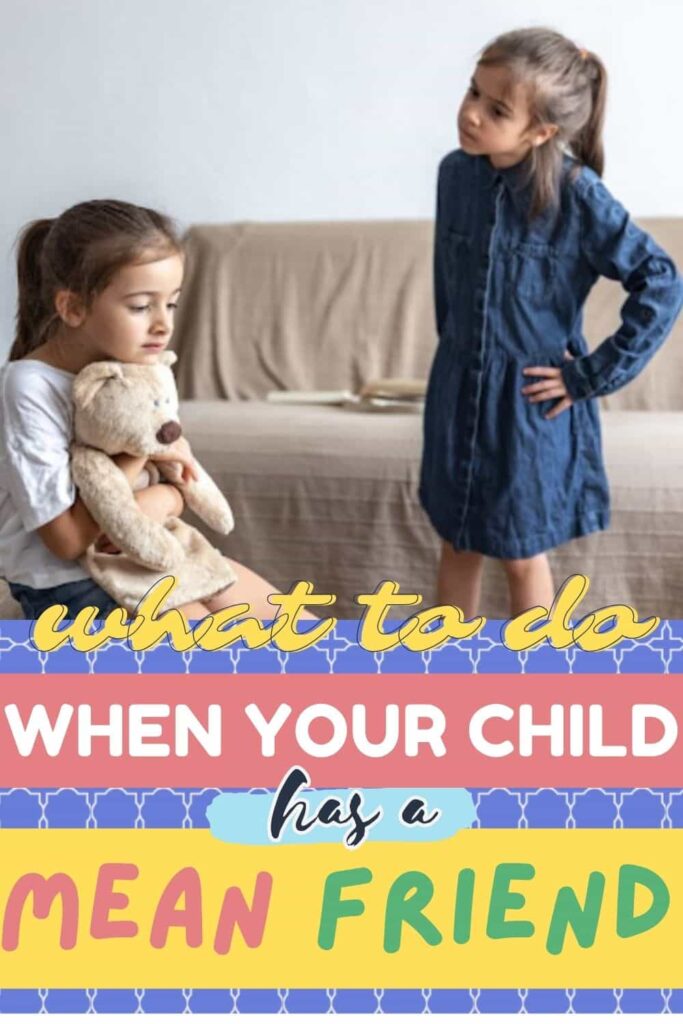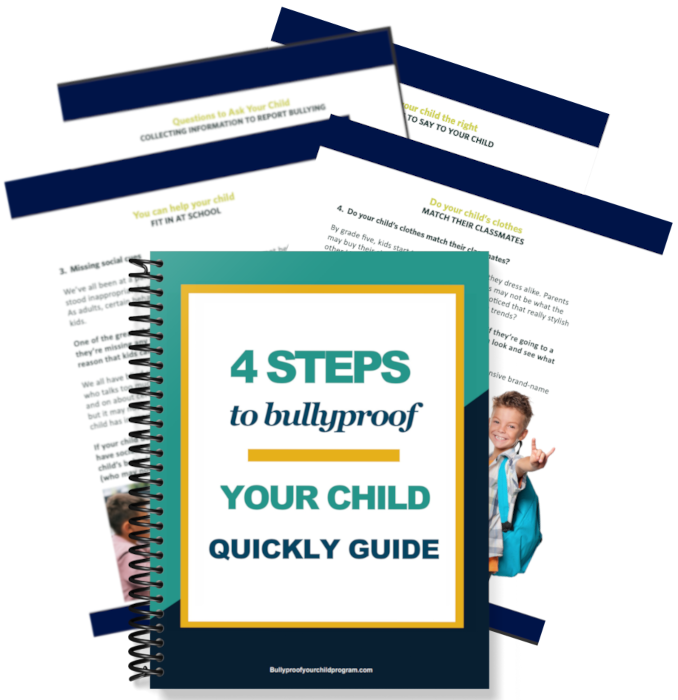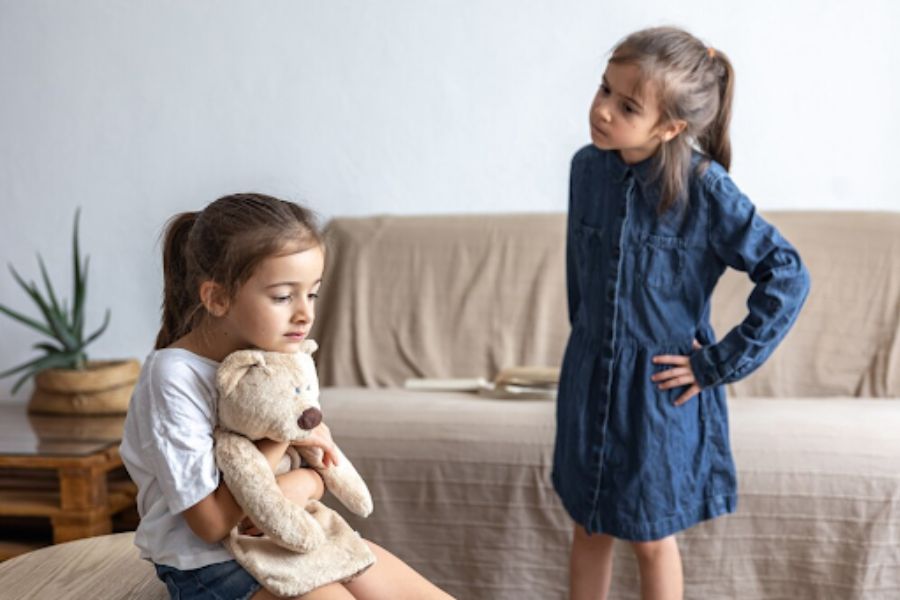
Understanding the Situation
It can be challenging when your child has a mean friend. How you deal with the problem should help your child feel better and learn important life skills.
First things first, you must figure out if the behavior is mean or if it’s just a big miscommunication. Sometimes, kids might misunderstand what someone is saying or doing. That’s why it’s important to gather all the facts before making any assumptions.
If you find out that your child’s friend is being mean, it’s crucial to figure out why they’re acting like that. Jealousy, insecurity, and problems at home are among the factors that can affect a child’s behavior. By figuring out why the behavior is happening, you’ll be better equipped to handle the situation like a pro.
Don’t forget to think about your child’s part in all of this. Even though it’s not their fault that their friend is acting mean, they might be doing things that unintentionally add to the problem. It’s a good idea to chat with your child about what they’re doing and help them see how they can react in a nicer and better way.
When you get to know what’s going on, you can tackle the problem in a better way and support your child through this tough time.
Addressing the issue of a mean friend
Having a mean friend can be tough for your child, but you can do some things to make it better. Let’s talk about steps you can take to help your child handle this situation in a good way.
Open Communication
An essential first step is communication that is open and honest. Create a relaxing mood by sitting down with your child in a quiet and welcoming environment, perhaps even over a snack or game. Let your child know right away that you’re willing to listen and offer assistance.
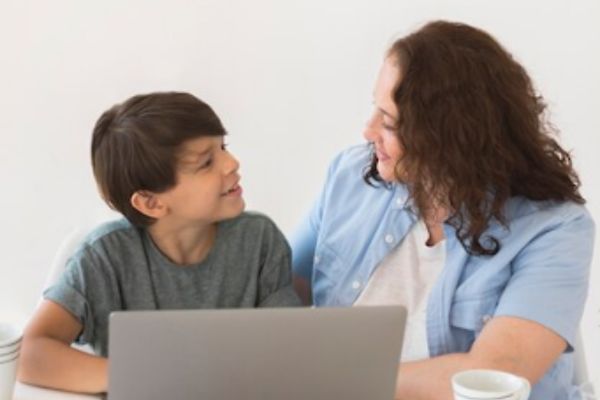
Keep conversations polite so your child can express their emotions without worrying about reprimands or criticism. Pay close attention to how they are feeling and allow them to fully express themselves. If your child is hesitant to open up at times, be patient and reassure them that you’re there to support them no matter what they share.
Teaching Empathy
For any child, dealing with someone who is constantly mean can be hard on their emotions. But when we teach our kids the value of empathy, we give them the tools they need to deal with these kinds of situations with strength and understanding. Children who have empathy can put themselves in other people’s shoes and understand how they feel and see things others do.
Also, talk to your child about how empathy makes relationships better. Remind them that trying to comprehend their friend’s thoughts and intentions may enhance communication and reduce misunderstandings. Your child might come up with new reasons for their conduct after hearing their friend’s point of view, which would make managing the situation simpler for them.
You should also teach your kid how to use their strengths and set limitations for themselves. Just keep in mind to be patient and be there for them every step of the way.
Friendship dynamics between kids
Friendships are like treasure chests in life, especially for kids. They fill life with happiness, buddies to share adventures, and a helping hand when things get tough. But friendships are a bit like puzzles; sometimes they shift and change. Teaching your child about how friendships work and how they can transform will help them sail smoothly through their social adventures.
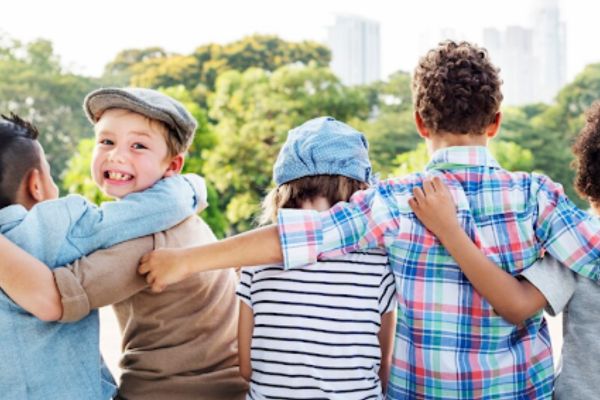
How a kid’s friendship can change
As kids get older and learn new things, their friendships with their friends may change over time. This could happen because of changing interests, the impact of peer groups, switching schools, or just getting older and more mature. When disagreements are fixed, relationships get stronger, but other times, new friendships form, and old ones slowly fade away.
As parents, you must create an environment that supports open conversation and unconditional love. In this way, you can give your kids the instruments they need to face these changes in friendships with strength and confidence.
Teach your child that it is okay to leave a negative friendship
Another important thing to impart is that it’s okay to end a negative friendship. Help them recognize the signs of a bad friendship and take the right steps to keep themselves safe. You will give your child valuable skills that will help them throughout their lives if you teach them how to speak up and set boundaries for themselves.
Support your child in meeting new people who will serve as positive influences. Encourage them to engage in new activities and interact with new people. New friendships that have interests that are compatible with their own.
Most importantly, keep telling them that they deserve friendships that are positive and helpful. And that it’s okay to end a relationship that isn’t helping them grow or be happy.
More posts you might like
- My friend’s kid is mean to my child
- Confident kids are less likely to get picked on
- Why won’t parents admit their child is a bully
Encouraging positive friendships for your child
It is important and worthwhile to make an effort to help your child develop positive relationships in their lifetime. The following are some suggestions that can assist you in fostering positive friendships:
Promoting social skills
Developing your child’s social skills is an excellent method to assist them in developing and sustaining strong relationships with their peers. Instill in your child the habit of being an attentive listener. Also, assist them in expressing themselves clearly while maintaining a respectful tone.
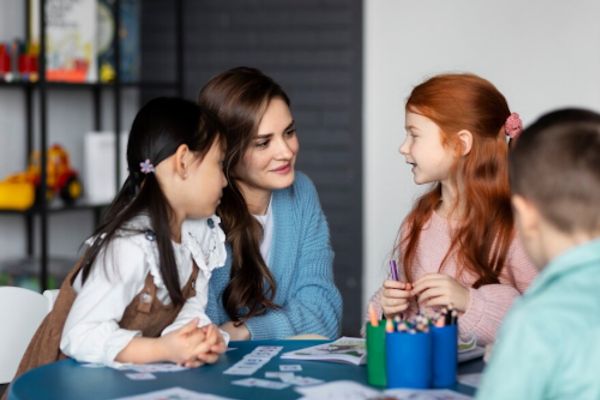
You should also instill in your child an appreciation and a healthy regard for the cultural, societal, and personal differences that exist in other people. Promote in them an appropriate respect for others’ personal space as well as their physical boundaries. Your kid will benefit from receiving positive encouragement whenever they demonstrate solid social skills.
Teach your child what a good friend is
When your kids start making friends, you must show them how to make healthy, significant connections. By talking to your kids about what qualities good friends should have, like being kind, helpful, and trustworthy, you can help them make friends that last. Talk to your kid about how to find friends with these awesome qualities.
Fostering healthy relationships
Allowing kids the chance to form wholesome interactions lays the foundation for the creation of deep and enduring friendships. It is crucial to start teaching kids early on the value of virtues like compassion, respect, and empathy. When children are encouraged to communicate openly and honestly, they learn to express their emotions and listen to others, thus promoting trust and mutual understanding.
As parents, you have the power to equip children with the necessary tools to foster meaningful and enduring friendships. By doing so, you can help them navigate the complexities of social interactions and create bonds that will positively impact their lives.
Involving school authorities
If your child’s mean friend keeps causing trouble or if you’re worried about their safety, it’s a good idea to talk to the school. When addressing this, it’s important to focus on finding a solution that benefits everyone instead of pointing fingers.
Getting in touch with the school can help solve the problem because teachers and counselors may have ideas and methods. These talks should be kind and non-confrontational, and they should be about working together and making your child and friend’s environment safer and more helpful.
